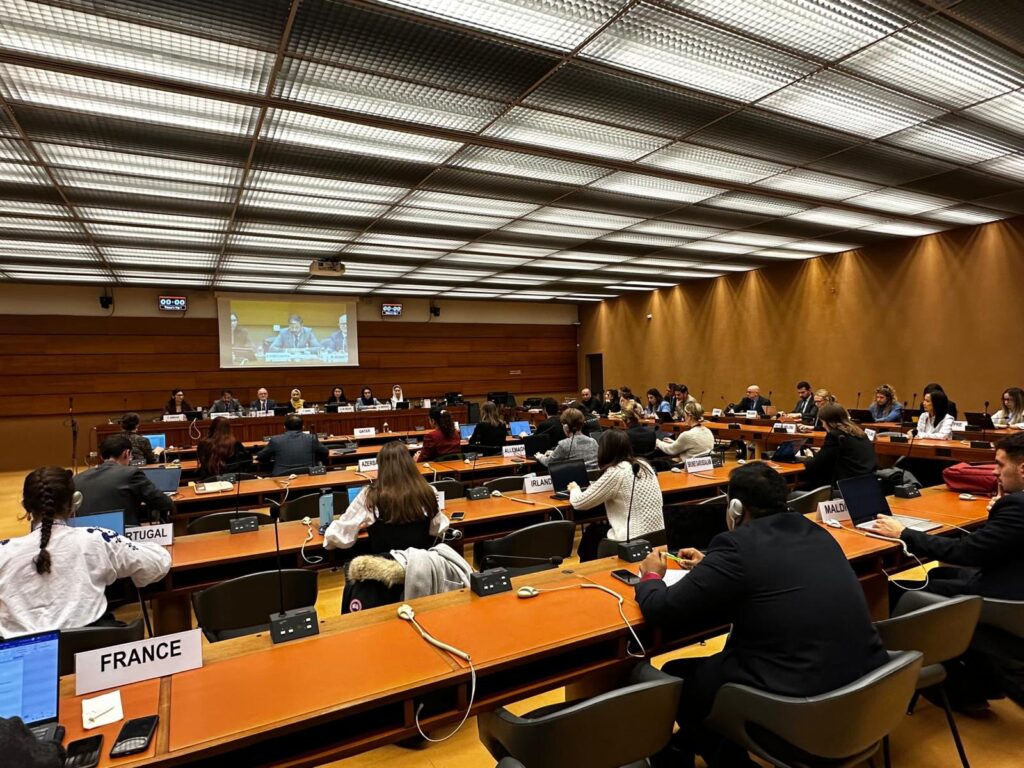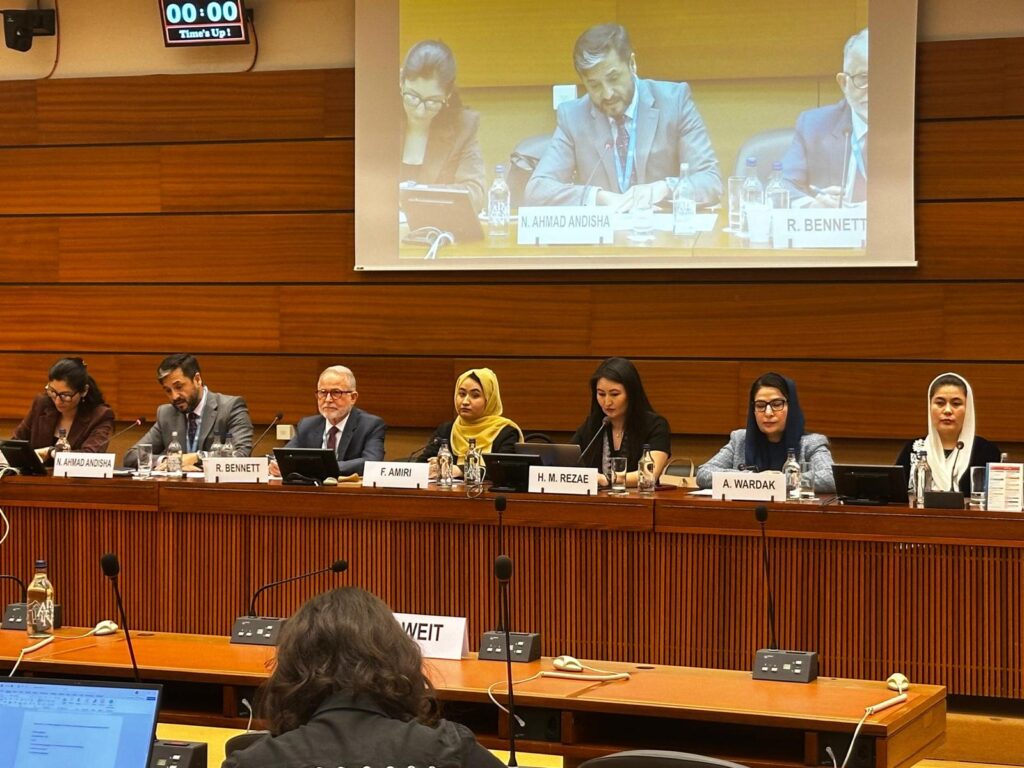As part of its ongoing efforts to advocate for justice and human rights in Afghanistan, Shahmama hosted a series of three-day advocacy programs during the 58th session of the UN Human Rights Council in Geneva. One of the key events, “Accessibility and Justice for Afghanistan,” took place on February 27, 2025, in Room XXII, Palais des Nations.
On February 27, 2025, Shahmama hosted a significant side event at the 58th UN Human Rights Council (UNHRC) session in Geneva, moderated by Dr. Homira May Rezae. The event focused on the ongoing human rights violations under the Taliban’s rule, particularly the persecution of Afghan women and ethnic minorities. Dr. Rezae steered a powerful and impactful discussion, emphasizing the need for legal accountability, including the roles of the International Criminal Court (ICC), the International Court of Justice (ICJ), and international sanctions.
The session underscored Shahmama’s continued commitment to advocating for Afghan human rights, particularly in securing justice for women. Dr. Rezae’s leadership ensured that the voices of Afghan human rights defenders and survivors were heard on the global stage, amplifying the call for accountability.
Key Points from Panelists on Strengthening Accountability Mechanisms for Afghanistan at the 58th UNHRC
1. Ambassador Nasir A. Andisha’s Multi-Layered Approach
Ambassador Nasir A. Andisha outlined a comprehensive approach to holding the Taliban accountable for human rights violations. Key initiatives include:
• ICC Indictments: The ICC has issued arrest warrants for key Taliban figures, including Haibatullah Akhundzada and Abdul Hakim Haqqani, for gender-based crimes.
• ICJ Action: A coalition of countries has initiated legal action to hold the Taliban accountable for violations of the Convention on the Elimination of All Forms of Discrimination Against Women (CEDAW).
• Independent Investigative Mechanism: A UN-led initiative to gather and preserve evidence for future legal proceedings.
• Universal Jurisdiction: Third-party countries are empowered to prosecute individuals based on ICC evidence.
• Targeted Sanctions: Economic measures against Taliban leaders are being applied to further isolate the regime.
These combined efforts form a robust “accountability ring,” ensuring that no level of authority escapes scrutiny. Shahmama continues to advocate for these mechanisms to protect Afghan women and marginalized communities.
2. Richard Bennett’s Emphasis on Systematic Oppression
Richard Bennett, the UN Special Rapporteur on the Situation of Human Rights in Afghanistan, emphasized the Taliban’s systematic oppression of Afghan women. He praised the ICC’s efforts and called for the establishment of an independent UN investigation mechanism. Bennett stressed the importance of sustained international pressure to hold the Taliban accountable, particularly in ensuring tangible improvements for women and girls.
3. Asila Wardak’s Call for a Comprehensive Global Response
Asila Wardak, a former diplomat, urged the international community to take a comprehensive approach to address all forms of atrocities in Afghanistan, not just gender-based violations. She called for a mechanism to address child recruitment, forced displacement, and attacks on ethnic minorities. Wardak also highlighted the need for stronger support for Afghan civil society and the acceleration of international legal actions.
4. Fereshta Abbasi’s Urgency for Documentation Mechanisms
Fereshta Abbasi, a researcher at Human Rights Watch, raised concerns about the lack of independent documentation of human rights violations in Afghanistan. She called for an independent investigation mechanism and stressed the importance of supporting Afghan civil society and media outlets, which are under severe threat from the Taliban. Abbasi emphasized that real-time documentation of abuses is essential for strengthening legal actions and accountability efforts.
5. Fatima Amiri’s Powerful Testimony on Education and Women’s Rights
Fatima Amiri, a survivor of the 2022 Hazara genocide attack, shared her harrowing experience and emphasized the urgent need for educational opportunities for Afghan women and girls. She highlighted the severe restrictions imposed on women under the Taliban regime, particularly in education, and called for concrete international actions to create opportunities for Afghan women and girls, beyond merely discussing the issue.
Conclusion
Shahmama’s side event at the UNHRC spotlighted the critical need for international accountability in response to the Taliban’s human rights violations. Through the voices of Afghan advocates and survivors, the event urged the international community to take concrete actions to address the ongoing crisis. Shahmama remains steadfast in its commitment to supporting efforts to secure justice for Afghan women and marginalized communities, and continues to amplify their voices in the global pursuit of accountability.


